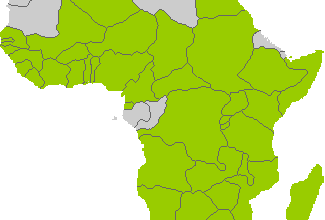ON THE MARKETS
Economists predict higher interest rates in fall
According to many of Canada’s top economists, higher interest rates – and debt servicing costs – may be just around the corner. Exactly when rates will rise is unclear and depends on who you talk to.
In its latest Financial System Review, The Bank of Canada judges that vulnerability of Canadian households to adverse wealth and income shocks has grown in recent years. “At present, Canadian household finances appear quite healthy,” Governor Mark Carney says, but it is the responsibility of households now to ensure that in the future, when the recovery takes hold and extraordinary measures are unwound, they can still service their debts.”
The Bank of Canada still maintains it will hold the line on rates until July of this year, and many analysts believe rates may start to rise in the fall of 2010, with some expecting a full three percentage point hike by the end of 2011. Here’s a summary of a few of the forecasts for where interest rates are headed over the next year and a half:
TD Quarterly Economic forecast
With home prices on track to grow a further 9.4% in 2010, the housing market will continue to support economic activity through much of the year, while rock bottom interest rates, improvements in financial asset and housing wealth, and a recuperating labour market will help underpin consumer spending. Home price growth will slow significantly thereafter, and residential investment is expected to detract from economic growth through 2011 and 2012. The slower rate of home price appreciation will also limit the rate at which household wealth increases, posing a hurdle for Canadian consumer spending. Second, households may be very sensitive to rising interest rates, particularly given the high rate of debt accumulation that occurred in response to record low interest rates. As such, an expected rise in short term interest rates of a full 3 percentage points by the end of 2011 is likely.
RBC Economics
In the near-term, with interest rates likely to remain low and the supply of homes available for sale relatively limited, we do not expect to see a sharp drop-off in sales activity. In the second half of 2010, however, the combination of higher mortgage rates and higher prices are likely to take some steam out of the market. In 2011, conditions in the housing market are likely to be relatively stable as the strengthening economy leads to job and income growth, which will offset some of the effect of the steady rise in interest rates throughout the year. The Bank of Canada will honour its conditional commitment to hold the policy rate at its current level until the end of the second-quarter 2010. Our baseline forecast looks for the Bank to raise the policy rate by 100 basis points in the second-half 2010. Another 225 basis points in rate hikes are expected over 2011 with the policy rate expected to settle at 3.5%.
Scotia Economics
For most other central banks, the process of normalizing the emergency level of short-term interest rates should begin around mid-year — led by the European Central Bank, but quickly followed by the Federal Reserve and the Bank of Canada, and belatedly by the Bank of England and the Bank of Japan. Overall, we expect that the Fed and the Bank of Canada will raise their overnight rates 2 percentage points by mid-2011, after which they are likely to remain on hold as the U.S. economy adjusts to a slower growth trajectory. U.S. bond yields should continue to trend higher against a backdrop of a revival in private sector credit demands, a less accommodative central bank stance, and the massive financial requirements associated with large and sustained government deficits.
CIBC World Markets
The US consumer upturn has been more vigorous than we would have expected, a challenge to our view that a rising savings rate would sap growth momentum. But we’re still a long way from the big job gains needed to bring unemployment down on a sustained basis, and we’re sticking to our view that the Fed will stand pat until early 2011. Still, Canadians must be prepared for when interest rates inevitably rise. “They are emergency rates, they won’t be here forever,” says Benjamin Tal, CIBC World Markets.
BMO Nesbitt Burns
As long as these conditions continue, the Fed should remain on hold. We look for the unemployment rate to peak during Q1 and remain in double digits until the autumn, with core inflation drifting down consistently during the year. We’ve pencilled in a September rate hike start, by which time the outlook for resource utilization, inflation, and inflation expectations should be signalling a precautionary requirement to begin removing monetary stimulus, and also reflecting the Fed’s concern that keeping policy rates too low for too long “could lead to excessive risk-taking in financial markets”. Rate hikes are likely to be gradual and could easily be postponed into 2011 because of continued high unemployment and inadequate credit creation.
“On The Markets” was published in the Febraury issue of the orea’s Edge Newsletter. This is it in its entirety:





